How do you delete yourself from the internet? As you can imagine, it’s not an easy process and there’s always new data popping up every day. Here are 7 simple steps you can take to start erasing your personal data off the internet.
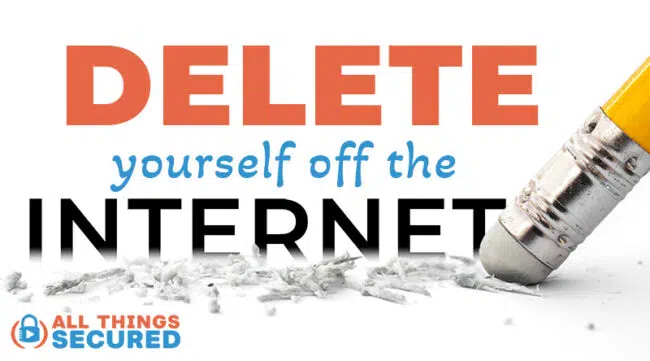
The internet has been lauded as one of the greatest inventions in the history of mankind, and rightfully so. This piece of technology has revolutionized how we think, communicate, conduct business, and also entertain ourselves.
And that’s nothing compared with what’s to come.
Unfortunately, all this comes at a price. And for some, it may be too costly. I’m talking about the erosion of our online privacy and the increased threat to our security online.
So much of your data is floating around the internet that it’s scary. Your name, where you live, what you do, your likes and dislikes, your friends and relatives, places you visit, and even places you would like to visit. That’s just to mention a few.
The main reason for having this information is to facilitate targeted marketing but in the wrong hands, this information can easily be used against you. This is why it’s a good idea to take the necessary steps to delete yourself from the internet.
3 Reasons to delete yourself from the internet
- To protect your identity – The number of identity theft cases is on an upward trend and it’s because of how easy it is for hackers to access people’s personal information online. Unless you take steps to protect yourself, it’s only a matter of time before you become part of the statistics.
- To protect your reputation – Every day we hear stories of people losing out on opportunities because of things they did or said eons ago, especially on social media. The internet never forgets and unless you do something, your past will always haunt you even when it does not represent your present.
- To maintain your privacy – The internet exposes a lot of personal information that we would like to remain private. If your physical address is public, what’s preventing the Facebook ‘friend’ that’s obsessed with you from stalking you in real life?
Can you completely delete yourself from the internet?
Unfortunately, it is practically impossible to remove every trace of yourself from the internet.
Something about you is guaranteed to pop up after a Google search. Negative online reviews are particularly hard to remove.
Those high-profile individuals with money invest in services that don’t necessarily erase the information, but simply outrank the negative content so that it disappears. This, as you can imagine, is costly.
But what are the things us ordinary people can do?
7 Steps to Erase Yourself from the Internet
There are a few critical steps you can take to minimize your digital footprint and control what personal information is available to the public.
Disclaimer: a lot of these methods will not be easy to implement but the peace of mind you get after is worth the effort.
1. Remove Personal Information from Data Brokers
This is potentially the most effective step you will take in terms of deleting yourself online. Data brokers collect your information from different sources and then create a detailed profile of who you are personally, financially, politically, and even religiously.
And because you have no direct relationship with these brokers (and they don’t have to ask permission to gather this data), you will have no idea that your data is being collected.
This data is then used in any of these two ways:
- It is publicly available when someone searches your name, and they get all your details from the broker.
- It is sold to other companies for marketing purposes.
Data brokers can also be victims of data breaches where hackers leak sensitive user information. For instance, Equifax, one of the biggest data brokers, was hacked in 2017 and the information of over 147 million people was leaked.
It is possible to make data removal requests for all of these data brokers, but it does take a lot of time.
Another alternative is to use a service like DeleteMe, which has been part of my privacy software recommendations for years now.
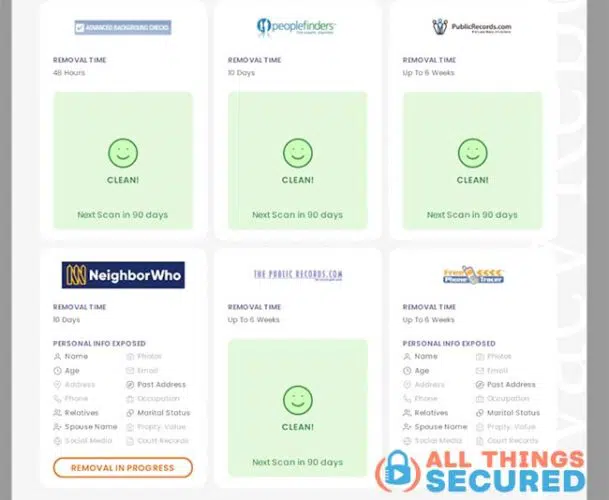
*Get 20% off when you use promo code ATS at checkout
How it works is that you provide them with your personal information such as name, gender, past and current address, names of relatives, email, and anything that could be used to find your information online. They will then go through the process of finding sites that have your information and request that it be removed. The process is repeated four times a year.
DeleteMe is one of many of these kinds of data broker removal companies, but it’s the one that I use and recommend.
2. Blur Your Home on Google Street View
Google Maps street view is a nifty feature from Google that allows you to explore places that you have never been to.
But from a privacy perspective, it’s disconcerting to imagine that a stranger from anywhere in the world can have a preview into your domestic life. That they can see the car you have packed in your driveway, peek through your windows, or see the dog on your lawn.
The good news is that it is possible to blur your house on Google Street View if you feel it violates your privacy.
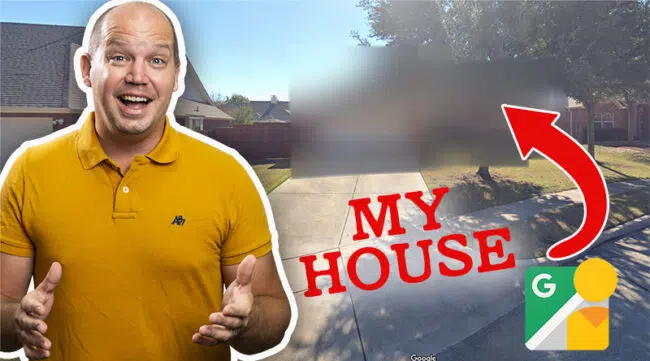
- First, go to Google Maps and enter your home address. Enter street mode and then when your house comes into view click on report a problem.
- Next, position the red box on the specific area you want to blur, and below that when they ask why you are reporting the image, select My Home. If you are blurring a face then select the A face option.
- Now, you will be prompted for a detailed reason for reporting the image. Enter your reasons and provide them with your email address to complete the process. You will receive an email notifying you that your request is being handled.
If everything goes well, your house will be blurred within 1-3 days.
3. Make Your Social Media Accounts Private
If you want to completely erase yourself from the internet your best option is to completely delete your social media accounts. However, there is also the less nuclear option of making social media accounts private.
The profile will still be available on search engines but only your friends can see your posts. All the top social media platforms have the option to make your account private.
While you’re at it, do an audit of your profile. This will help you find old posts that you wish to delete because they are a contradiction to your current self.
4. Submit Requests for Info to Be Taken Down
If you have ever contributed to a blog then that blog will likely have your personal information. Not just the author bio but opinions you shared in the blog that you no longer stand for or content you shared in the blog that may compromise your privacy or security.
If that’s the case, reach out to the website owners and request that they pull down this information.
And don’t forget about web forums. These may also contain comments that may be scarring to your reputation.
5. Delete Old Accounts That Aren’t Being Used
This one will be a bit hard especially since it’s impossible to remember all the accounts you have signed up for. Social media accounts, email accounts, and eCommerce accounts: all of them contain personal information that could compromise your security and privacy.
A good starting point is to create a list of old accounts you remember, common usernames, and email, and then search different search engines to see what comes up.
You can also go through your list of saved passwords and email inbox to find accounts you have forgotten about.
Next, log in to the accounts and follow the laid-out procedure to delete that account.
6. Start Using Privacy-Focused Software & Services
When choosing the best service to use for your internet needs, make privacy a priority.
Google may have the most popular services like Chrome browser, Google search engine, and Gmail, but, unfortunately, the company has no respect for user privacy. There are some great private alternatives to Gmail and some amazing privacy browser alternatives to Chrome!
For instance, instead of the Google search engine, you can use Brave, which allows you to search and browse privately without being tracked.
For email, you can use a secure email provider like Protonmail that offers end-to-end encryption and won’t try to create a marketing profile using your inbox content.
7. Start Giving out Conflicting Information
When signing up for various online services, it’s common practice that you provide your personal information. This could be your name, address, phone number, and credit card details.
This is unavoidable, but there are ways to protect your privacy while at it. There are services online that enable you to create virtual instances of your real information to protect your real info. You can have a virtual phone number, virtual address, virtual credit card, and even (where legal) alternate identities that make the real data harder to find.
Final Thoughts
The truth is, it’s impossible to completely go off the grid and delete yourself off the internet. However, by taking the steps outlined above you will be one step ahead in the fight for online privacy and security.
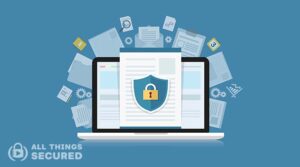
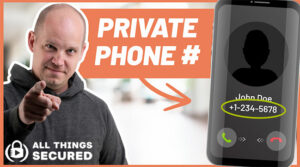
New business idea:
I don’t know if there is any money to be made doing this, but: a data-poisoning service.
Take customer’s real name, email address, postal address, etc and try to poison online databases with various combinations of real and fake data. Maybe it does this by signing up for newsletters, price quotes, send-me-more-info requests, using real name and age and state but fake other info.
Maybe the ethics of this are questionable.
Interesting idea, Bill. I’m sure this exists in some way somewhere, right?